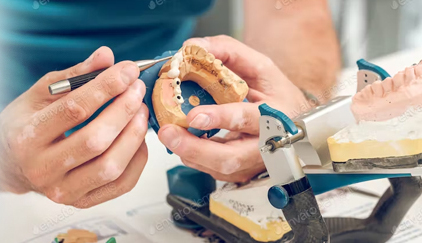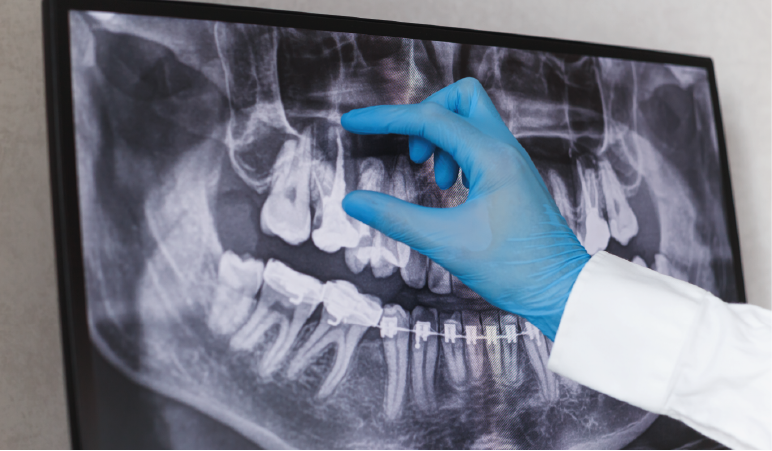If a patient is preparing for or considering root canal treatment, he/she is expected to experience certain discomfort for a few days. There are several things that a patient can do after his/her root canal procedure to ensure the quickest and most smooth recovery possible recommended by Jaipur best dentist at My Dental Care. The possible discomfort and their management are
Anaesthesia- After each appointment when anaesthetic has been used, the patient’s lips, teeth and tongue may be numb for a few hours. He/she should wait until the numbness in their mouth wears off before eating so they won't bite their cheek or tongue. When they start to eat, they should be careful not to chew or bite directly with the affected tooth until all tenderness in the area is gone.
Food- Since post-treatment, the affected tooth is bound to remain quite tender, no activities of chewing and munching should be done through the side where it is oriented. Foods that are hard in texture or crunchy to bite into are required to be avoided after the root canal treatment. The patient should avoid biting hard foods and hard substances, such as ice, fingernails and pencils. Only after the tooth has been finally refurbished, anything hard can be consumed. The patient should also avoid chewing sticky foods (especially gum) because this kind of food can get stuck between his/her teeth and healing is delayed in these cases.
Pain- The patient should not be surprised by slight pain and sensitivity. Pain is an unwanted yet unfortunately common sensation after root canal treatment (RCT) which commences a few hours or days after treatment and is always an unpleasant experience for both patients and clinicians. It's normal to experience some discomfort for several days after a root canal therapy appointment, especially when chewing. No significant difference in postoperative pain has been found between one-visit RCT and two-visit treatment. For any subsequent pain experienced, people are heavily recommended to go only for their dentist-prescribed pills. Non-steroidal anti-inflammatory drugs are one of the most frequently taken analgesic medications for dental pain. Pain should subside within a few days (or even weeks). If antibiotics are prescribed, the patient should continue to take them for the indicated length of time, even if all symptoms and signs of infection are gone. To further reduce pain and swelling, rinse three times a day with warm salt water.
Swelling- After the procedure, a patient may experience soreness and swelling around his/her mouth. In that case, a patient is asked to keep his/her head elevated while he/she sleeps for the first few nights as they are recovering. Keeping your head propped up on an extra pillow will help reduce the discomfort. Eating ice cream and using cold compresses will help to keep the swelling down following the root canal procedure. Since the patient may notice tooth sensitivity in his/her affected tooth, they should avoid eating ice cream with that side of the mouth. The patient is also asked to use a cold compress for up to 15 minutes at a time several times a day following the procedure until the swelling has subsided.
Gargling- Gargling with warm water and salt will help keep the mouth clean and prevent any infection from establishing itself in the gums surrounding the affected tooth. The ratio of salt to water should be approximately half a teaspoon to one cup of warm but not hot water; then rinse, swish, and spit.
Broken fillings- Between appointments, it's common (and not a problem) for a small portion of your temporary filling or crown to wear away or break off. If the entire filling falls out, or if a temporary crown comes off, the patient can be recalled to the dental office so it can be replaced by the best dental clinic in Jaipur.
Break- The dental care first two days after a root canal procedure are not the time for playing sports, physical labour, running, or hiking. Instead, take that time to relax and avoid strenuous activity while recovering.
Crown/cap- The prime consequence of this clinical method leads to the alteration and weakening of the very tooth framework. Hence, whether an individual is availing the treatment for one tooth or more, as a ground norm, the one must get the safety ‘cap’ or crown placed over the treated teeth. Without the cap, the teeth might not be protected completely. Usually, the last step after root canal treatment is the placement of a crown on the tooth. A crown covers and protects the tooth from breaking in the future. Unless otherwise noted by the dentist, it is critical to have a crown placed on your root canal therapy-treated tooth as soon as possible. Delay in obtaining final restoration (crown) may result in fracture and/or possible loss of the tooth.
Brushing- After root canal treatment, it's important to keep the area clean. Once the Root Canal has been done, the brushing time should be extended, as keeping the healed area optimally clean is a basic necessity. With time and attention, the brushing activity should be conducted and flossing too must be done with good-enough gentleness to avoid any other infection in the treated tooth.

